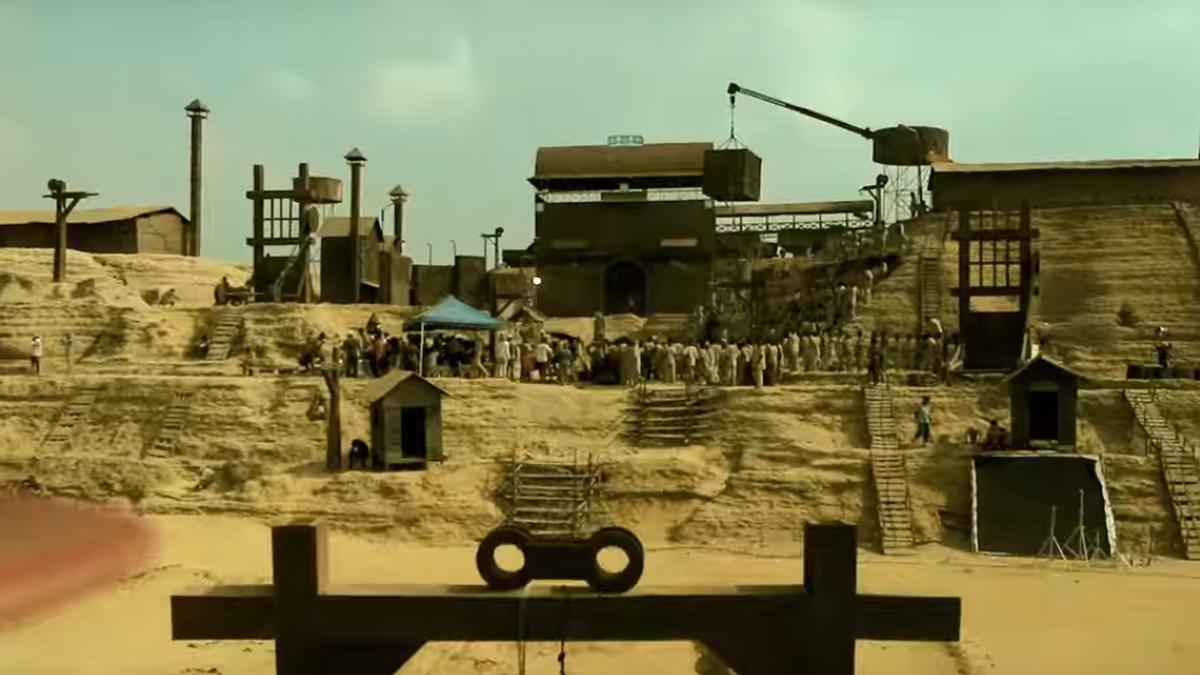Beyond the glitz and glamour of cinema, there are untold stories of thousands of artistes and workers in the industry who have nothing to fall back on as they grow old or face financial difficulties due to health issues or other reasons.
To address this issue, the Karnataka government announced last week that it is considering imposing a cess on movie tickets and OTT subscription fees to aid cinema and cultural artistes in distress. If implemented, the cess will be revised every three years by the state government to the tune of 1-2%. The cess will be applicable on revenue generated from cinema tickets, subscription fees and related establishments in Karnataka. The state government also said that it plans to impose a cess on plays staged within Karnataka as well.
These are part of the provisions of the Karnataka Cine and Cultural Workers (Welfare) Bill, 2024, passed by the Legislature on June 26. The Bill envisages constitution of a welfare board and setting up of a fund to finance schemes to provide social security to cine and cultural workers in the state. The welfare cess will be called the “Cine and Cultural Workers Welfare Cess”. Cine and cultural workers registered under the board will be eligible to file a petition before a government-designated office regarding any grievance. Labour Minister Santosh Lad said the Bill would benefit about 60,000 to 70,000 workers engaged in the cine and other cultural sectors.

Labour Minister Santosh Lad says, “There are many daily wage workers in the cinema and arts sector like dancers, extras, spotters, stuntmen, make-up artists and many more who hardly get any welfare schemes and are paid very little.” | Photo Credit: Vaidya
thousands of daily wage workers
while talking to The Hindu, Lad said, “There are many daily wage workers in the cinema and arts sector like dancers, extras, spotters, stuntmen, makeup artists and many more who hardly get any welfare schemes and are paid very little. We decided to bring this bill based on our experiences and the stories we heard from the industry. I met a very old lady cine artiste, she told me how she had no one to take care of her in the last days of her life and she had very little money. We could not help her then, but now this bill has been introduced in the assembly and I am sure it will be passed.”
He said it will also help the theatre community. “Theatre artistes do not have a commercial mindset as they put their passion before anything else. This bill will work for their welfare,” he said.
When asked if the imposition of the cess would affect the cinema-goers or the daily collections, Lad said it would be a very nominal amount. “Our country has a market of about 2.2 billion tickets per day, and we are the largest cinema-goer in the world. We have about 550-600 theatres in Karnataka, so a 1-2% cess on tickets would be anywhere between 25 paise – ₹2 per ticket, which is very nominal. With the cess collected, funds will be provided by the state, which will go towards the welfare of artistes.”
Stuntman Rahul (name changed), who has been working in the film industry for over a decade, says several schemes have come and gone, but there is no guarantee that they will reach them. “As stuntmen, we can use our healthcare facilities only when something serious happens. But for minor injuries we have to bear the expenses. Safety is still a concern. Only after the infamous Anil and Uday incident, in which these two actors lost their lives while performing stunts and actor Duniya Vijay lost his life along with them in 2016, our safety was given some priority. But it is still a risky job. Through the levy of cess, we hope the money will reach us. It will be helpful if the government can help us get better safety equipment and easier access to medical services,” he said.
Simplify the process
Karthik B. (name changed), who is a gaffer (head lighting technician) and a cinematographer in the industry, says the government should focus on making the process of getting an artiste card easier. “I have many light boys working under me, and it is difficult for many of them to get an artiste card. An artiste card is issued by an association or union that is certified by the government. These cards help in claiming medical insurance or getting timely payments or daily wages. But many still don’t have cards because the issuers expect bribes. If an artiste is not able to get a simple card, what is the guarantee that these welfare funds will reach us? Even during the pandemic times, we were given coupons of a retail store instead of a salary to run our families. We don’t have a strong light man union in Karnataka unlike other states, which we desperately need right now.”

NM Suresh, president of Karnataka Film Chamber of Commerce (KFCC), fears that the imposition of cess will only burden the producers. “The imposition of cess will help labourers, but it will be a burden for producers who are already paying multiple taxes. Also, there is already a welfare fund for film labourers.” Suresh says a letter has been issued to the government objecting to its decision and demanding that the welfare cess be split and which categories of artistes will benefit from it.
Implementation is key
However, there are many who believe that such initiatives are welcome if implemented correctly. Actor Prakash Raj says the move is good as long as it is sustainable. “If it is going to benefit artistes then it is a good move. If they are taking money from the industry and empowering industry people then it is fair enough. I believe that not everything should be the government’s responsibility and we should all be considered partners.” However, he added that the government should ensure that sustainability is maintained. “Whether it is cinema, OTT or theatre, all of us in the industry should contribute,” he added.
B. Suresha, a film, television and theatre director, producer and writer, agrees. “The idea behind introducing a cess based on artistes’ welfare is a great move. But it has been under consideration for many years and nothing has taken shape. The issue is that currently the entertainment tax is going to the central government. The state government should figure out how the money will come back to them, so that they can do what they want.”

He says the government should streamline the process and take it through unions rather than enforcing laws. “Kerala has a good model where there is a trade union for artistes, wherever artistes perform they pay an amount to the union for every performance or earnings. This helped many artistes during the pandemic, the union paid them salaries even when the performance venues were closed. A similar model can be implemented for theatre artistes as well,” says Suresha.
“Theatre is still a struggling art in Karnataka. In a city like Bengaluru, tickets for most Kannada plays cost around ₹200, and yet there are very few theatre-goers, and teams are in debt,” says J. Lokesh, former chairman of the Karnataka Nataka Academy. | Photo credit: Sampath Kumar GP
Concerns of theatre artists
On the other hand, the theatre community in Karnataka argues that levying a cess on theatrical performances would be unfair. J. Lokesh, former president of the Karnataka Nataka Academy, says, “Theatre is still a struggling art in Karnataka. In a city like Bengaluru, tickets for most Kannada plays cost around ₹200, and yet there are very few theatre-goers, and teams are in debt. Imposing a cess would mean an increase in ticket prices, and losing audiences… First, the government should ensure that existing funds and schemes are easily available to artistes.”
Senior theatre artiste BV Rajaram says, “Theatre is not a platform where statistical investments are made and profits are made unlike cinema or OTT. Theatre is a means to promote the language, history and culture of Karnataka. We theatre producers are already paying taxes in the form of GST, imposing cess will only add to the existing burden.”

Arundhati Nag, film and theatre artiste and founder of Ranga Shankara, says theatre is a social service and the government should incorporate welfare schemes without charging the community. “It is fair to tax cinema and OTT as they are businesses. Theatre, especially amateur theatre and other smaller modules of performing arts where ticket rates are so low, it is a miracle that theatre still exists. The government should provide health and other services to artistes without charging the theatre community.”
